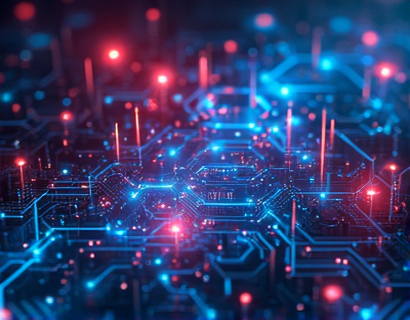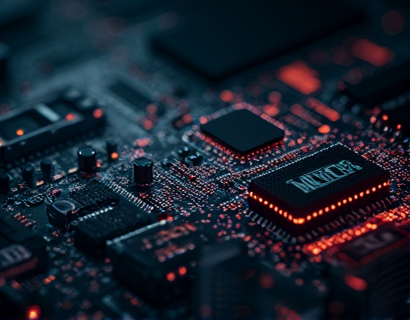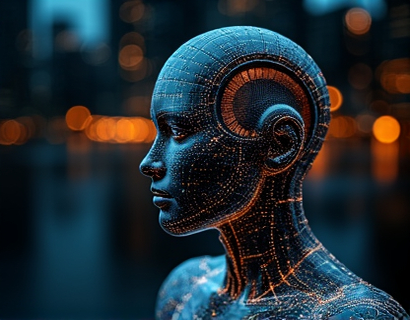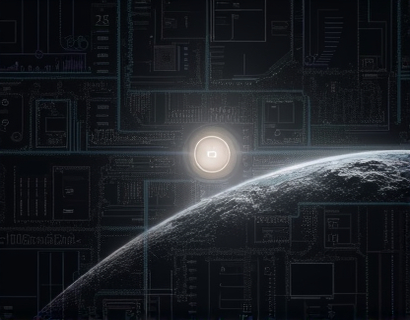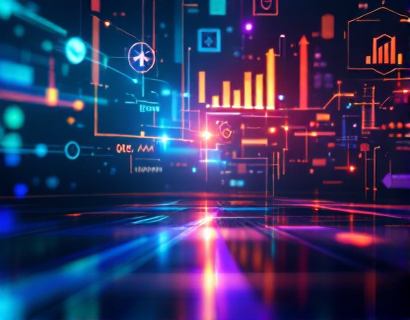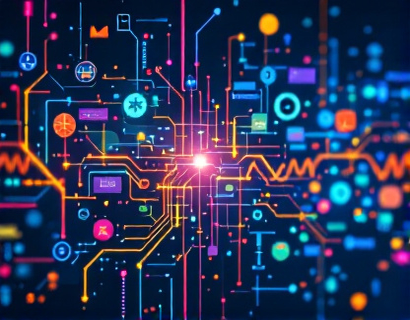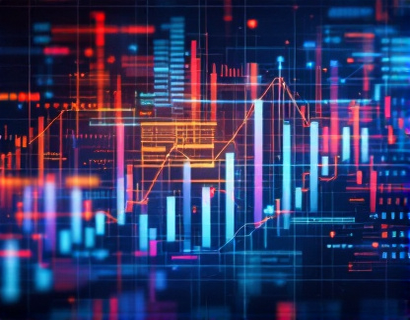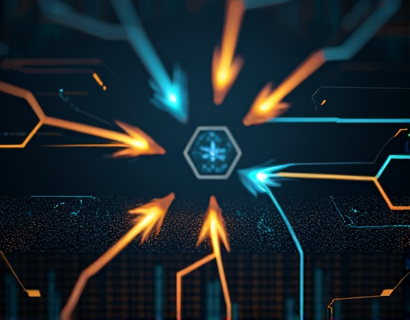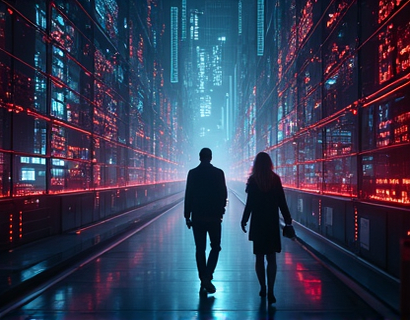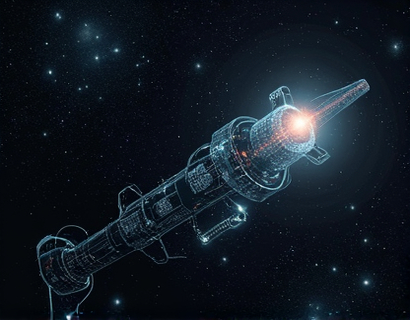Decentralized Productivity: Maximizing Efficiency with AI and Crypto in Ucosystem Applications
The integration of artificial intelligence (AI) and cryptocurrency into decentralized applications, often referred to as Ucosystem applications, is revolutionizing the way we approach productivity and digital workflows. This synergy offers a unique opportunity to enhance efficiency, security, and user experience, marking a significant shift in the digital landscape. As technology continues to evolve, understanding the potential of these combined forces is crucial for anyone interested in the future of decentralized technology and smart solutions.
Decentralized applications, or dApps, operate on blockchain networks, which provide a transparent, secure, and tamper-proof environment. When AI is integrated into these dApps, the result is a powerful tool that can automate complex tasks, analyze vast amounts of data, and provide insights that were previously unattainable. Cryptocurrency, on the other hand, serves as a medium of exchange within these decentralized ecosystems, enabling seamless transactions without the need for intermediaries.
Enhancing Productivity with AI in Decentralized Applications
AI plays a pivotal role in enhancing productivity within decentralized applications. One of the primary ways AI contributes is through automation. Repetitive and time-consuming tasks can be automated, allowing users to focus on higher-value activities. For instance, in project management dApps, AI can handle scheduling, resource allocation, and even predictive analytics to optimize project timelines and outcomes.
Another significant benefit is the personalization of user experiences. AI algorithms can analyze user behavior and preferences to tailor applications to individual needs. This customization ensures that users receive relevant information and tools, streamlining their workflow and increasing efficiency. In content creation platforms, AI can assist in generating ideas, drafting articles, and even editing content, making the creative process more efficient and accessible.
Security and Trust through Blockchain
The underlying blockchain technology ensures that transactions and data stored within decentralized applications are secure and transparent. Each transaction is recorded on a distributed ledger, which is immutable and accessible to all participants. This transparency builds trust among users, as they can verify the integrity of the data and the operations within the application.
Cryptocurrency further enhances security by providing a decentralized and censorship-resistant medium of exchange. Traditional financial systems often involve intermediaries such as banks, which can introduce delays and vulnerabilities. In contrast, cryptocurrency transactions are direct and secure, reducing the risk of fraud and ensuring that users maintain control over their assets.
Smart Contracts: Automating Agreements
Smart contracts are self-executing contracts with the terms of the agreement directly written into code. They automatically enforce and execute the terms when predefined conditions are met, eliminating the need for intermediaries. In the context of decentralized productivity applications, smart contracts can automate workflows, payment processes, and even collaboration agreements.
For example, in a decentralized marketplace, smart contracts can manage the entire transaction process, from order placement to payment and delivery verification. This automation not only speeds up the process but also reduces the potential for errors and disputes. Users can have confidence that the terms of the agreement will be honored, fostering a more reliable and efficient environment.
Decentralized Identity and Access Management
Decentralized identity solutions are another critical aspect of Ucosystem applications. Traditional identity management systems are centralized, making them vulnerable to breaches and misuse. Decentralized identity solutions, powered by blockchain and AI, allow users to control their digital identities and manage access to various applications and services securely.
AI can enhance these solutions by analyzing behavior patterns and detecting anomalies, providing an additional layer of security. Users can authenticate themselves using biometric data or other secure methods, ensuring that only authorized individuals access sensitive information and perform critical tasks. This approach not only protects user data but also simplifies the login and access management process.
Collaboration and Communication in Decentralized Environments
Effective collaboration and communication are essential for productivity, and decentralized applications are redefining how teams work together. AI-driven tools can facilitate real-time translation, summarization, and even sentiment analysis, breaking down language barriers and enhancing understanding among team members.
Decentralized communication platforms can leverage blockchain to ensure the integrity and privacy of messages. AI can further enhance these platforms by providing intelligent assistants that manage schedules, prioritize tasks, and even mediate discussions to keep the focus on productive outcomes. These tools create a seamless and efficient collaborative environment, regardless of the geographical location of team members.
Economic Incentives and Tokenization
Cryptocurrency and tokenization play a crucial role in incentivizing participation and rewarding contributions within decentralized applications. By issuing tokens that represent value within the ecosystem, developers can motivate users to engage actively, contribute content, or provide services. These tokens can be used to access premium features, vote on governance decisions, or even traded for other cryptocurrencies or fiat currencies.
AI can optimize the distribution and management of these tokens, ensuring that incentives are aligned with the desired behaviors and outcomes. For instance, AI algorithms can analyze user engagement and adjust token rewards dynamically to maintain a balanced and active community. This approach not only fosters a vibrant ecosystem but also ensures that the most valuable contributions are recognized and rewarded.
Challenges and Considerations
While the potential of decentralized productivity applications is vast, there are several challenges and considerations to keep in mind. Scalability remains a significant issue, as blockchain networks can struggle to handle a high volume of transactions efficiently. However, ongoing developments in blockchain technology, such as layer 2 solutions and sharding, are addressing these challenges.
Another consideration is the user experience. Decentralized applications often require a certain level of technical knowledge, which can be a barrier for new users. Simplifying the onboarding process and providing intuitive interfaces are essential for widespread adoption. AI can play a role here by creating guided tutorials and personalized onboarding experiences.
Future Prospects
The future of decentralized productivity applications is promising, with continuous advancements in AI and blockchain technology. As these technologies mature, we can expect more sophisticated and user-friendly tools that further enhance efficiency and collaboration. The integration of AI-driven predictive analytics, advanced natural language processing, and more secure blockchain protocols will continue to push the boundaries of what is possible in decentralized ecosystems.
Moreover, the convergence of decentralized applications with other emerging technologies, such as the Internet of Things (IoT) and augmented reality (AR), opens up new possibilities for innovative solutions. The potential for creating smart, autonomous, and interconnected systems that optimize various aspects of daily life is immense.
In conclusion, the synergy of AI and cryptocurrency in decentralized applications is transforming productivity and user experiences. By leveraging the strengths of blockchain, AI, and cryptocurrency, we can build more secure, efficient, and user-centric digital workflows. As the technology continues to evolve, the future of decentralized productivity holds endless possibilities, offering a glimpse into a more connected and efficient world.




